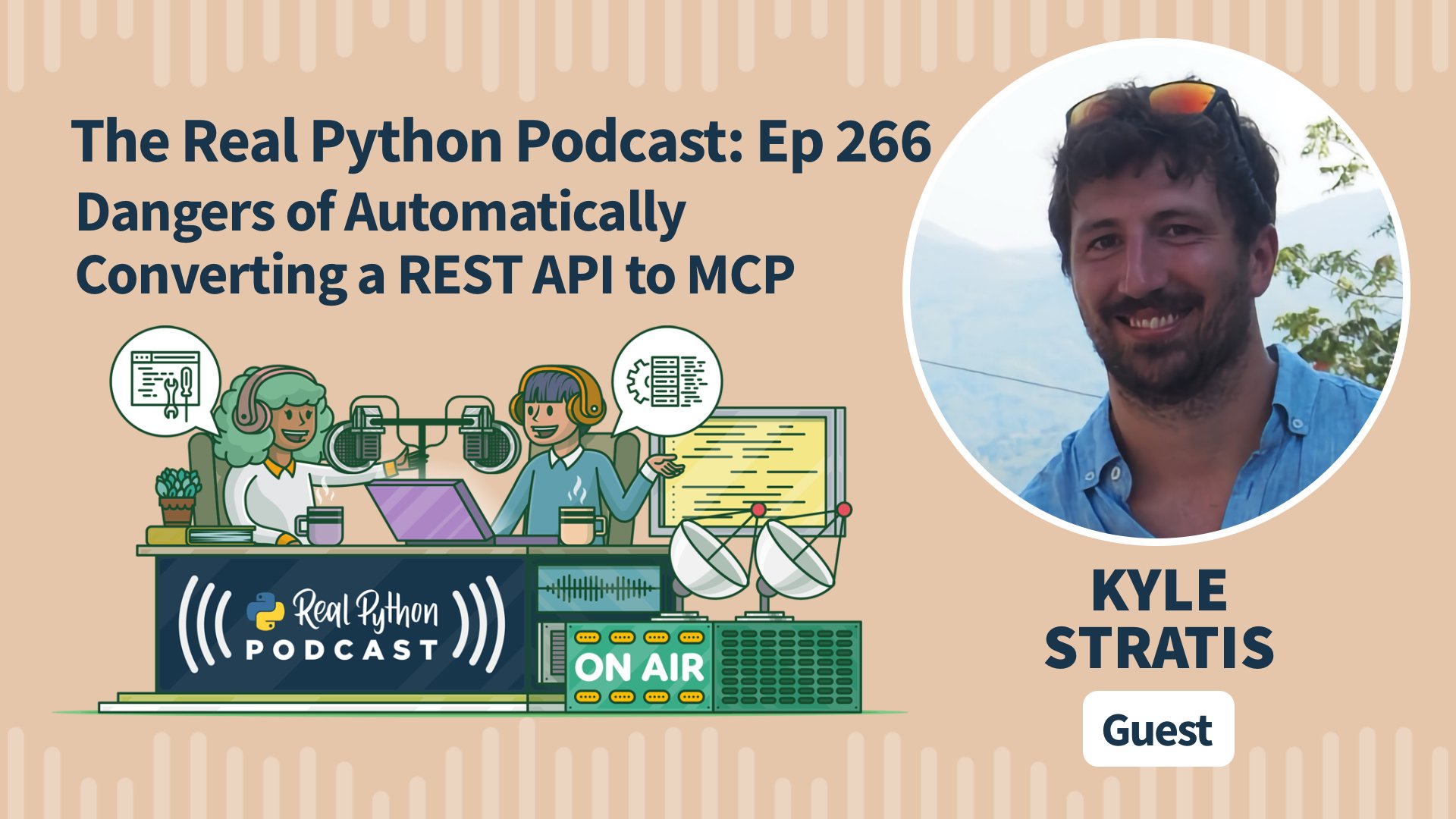
"Kyle is also writing a book about building MCP clients, services, and end-to-end agents. We discuss a recent article he wrote about the hazards of using an automated tool to convert a REST API into an MCP server. He shares his personal experiences with building MCP tools and provides additional resources for you to learn more about the topic. This episode is sponsored by InfluxData."
"When converting an existing REST API to the Model Context Protocol, what should you consider? What anti-patterns should you avoid to keep an AI agent's context clean? This week on the show, Kyle Stratis returns to discuss his upcoming book, "AI Agents with MCP". Episode Sponsor: Kyle has been busy since he last appeared on the show in 2020."
"00:16:49 - Describing the differences between REST APIs and MCP 00:19:59 - Interaction model differences 00:27:29 - Sponsor: InfluxData 00:28:21 - Agent stories 00:32:58 - Going through a simple example of MCP server 00:37:50 - Defining client and server 00:40:19 - Examples of servers currently 00:51:44 - Announcement: Python for Beginners: Code with Confidence"
Converting REST APIs to the Model Context Protocol requires rethinking endpoints, interaction patterns, and data modeling to fit agent-driven context rather than traditional request/response semantics. REST patterns like server-side state, verbose metadata, and pagination can leak irrelevant information into an AI agent's context if migrated without transformation. Automated conversion tools can introduce anti-patterns such as noisy state, chatty operations, and tightly coupled auth or resource semantics that confuse agents. Clean MCP design minimizes context to relevant data, separates concerns, provides idempotent and composable operations, and carefully maps errors and schemas to agent-friendly formats.
Read at Realpython
Unable to calculate read time
Collection
[
|
...
]